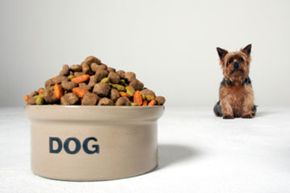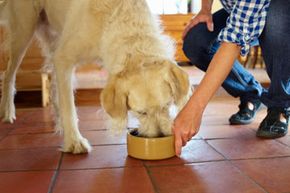You've probably heard a lot about the importance of protein in your own diet, but you might be curious about how this applies to man's best friend, the dog. It turns out that dogs need a balanced diet made up of six essential components, and one of the most important of these is protein. Dogs simply can't survive without it. The other components are carbohydrates, fat, vitamins, minerals and water.
Some old rumors are still floating around about the dangers of giving a dog too much protein. These say that a protein-rich diet can lead to joint problems or kidney damage. But modern research has pretty much dispelled these as myths. In fact, growing puppies need extra protein for proper development [source: Olson]. And the evidence suggests that excess protein won’t ever cause kidney damage. Actually, it’s the kidneys’ job to excrete excess protein from the body. So, extra protein shouldn’t hurt a dog with healthy kidneys. However, this means that if a dog does develop a kidney disease, the vet might recommend a diet low in protein -- or one with protein that's digested easier -- to avoid putting stress on the kidneys.
Advertisement
If you're a long-time cat-owner who recently decided to include a canine in your animal family, it's important to note that dogs and cats have different protein needs, since cats are carnivores. Biologically, dogs are omnivores, just like humans. But even though dogs can get by with plant-based protein, many experts say that they thrive best with a diet that provides a decent amount of animal-based protein. Because of their long ancestral history of hunting for prey, their digestive system is best suited for deriving protein from animal sources.
A dog's precise needs depend on a variety of factors, including breed, activity levels, age and metabolism. Learn more about the specific role of protein in a dog's diet on the next page.
Advertisement



